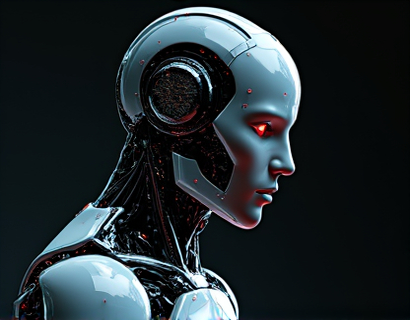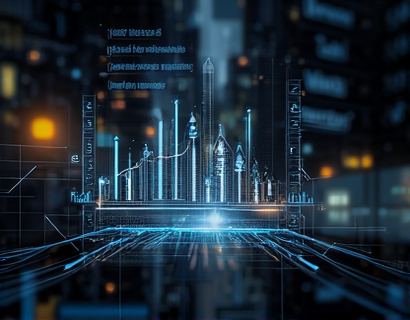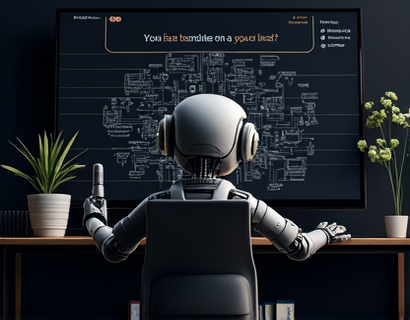Unlock the Future: Discover Cutting-Edge Appliances for the Modern Tech Home
The modern home is evolving at an unprecedented pace, driven by technological advancements and a growing demand for efficiency and convenience. Embracing this transformation, homeowners are increasingly turning to smart appliances that not only enhance daily routines but also contribute to a more sustainable lifestyle. This article delves into the world of cutting-edge smart appliances, exploring their benefits, latest innovations, and how they can seamlessly integrate into modern living.
Smart appliances are more than just gadgets; they are the cornerstone of a smarter, more efficient home. These devices leverage the power of internet connectivity, artificial intelligence, and advanced sensors to perform tasks with greater precision and convenience. From refrigerators that monitor food freshness to washing machines that optimize energy usage, each appliance is designed to make life easier and more comfortable.
Enhancing Daily Routines
One of the most significant advantages of smart appliances is their ability to streamline daily tasks. For instance, smart ovens can be preheated remotely via a smartphone app, ensuring that your food is ready exactly when you need it. This feature not only saves time but also ensures optimal cooking results. Similarly, smart coffee makers can be programmed to start brewing at a specific time, so your favorite cup is ready as soon as you wake up.
Smart thermostats are another game-changer in daily routines. These devices learn your temperature preferences and adjust the heating or cooling system accordingly, leading to significant energy savings. By maintaining a comfortable home environment without unnecessary energy consumption, smart thermostats contribute to both comfort and sustainability.
Energy Efficiency and Cost Savings
Energy efficiency is a critical aspect of modern smart appliances. These devices are designed to consume less power while maintaining or even improving performance. For example, smart refrigerators often come with advanced insulation and energy-efficient compressors, reducing the amount of electricity needed to keep food fresh. This not only lowers your utility bills but also minimizes your carbon footprint.
Smart washing machines and dryers are equally impressive in terms of energy savings. They use sensors to detect the load size and adjust water and energy usage accordingly. Some models even have eco-friendly cycles that use less water and energy, further reducing costs and environmental impact. Over time, these savings can add up significantly, making smart appliances a wise investment for any tech-savvy homeowner.
Health and Hygiene
The health and hygiene benefits of smart appliances cannot be overlooked. Smart refrigerators equipped with built-in cameras allow you to check the contents of your fridge from anywhere, reducing food waste by ensuring you only buy what you need. Some models even track expiration dates and suggest recipes based on the ingredients approaching their expiration.
Smart dishwashers with advanced filtration systems can remove more dirt and bacteria than traditional models, ensuring your dishes are thoroughly clean. Additionally, some smart vacuums and robots can navigate your home to clean hard-to-reach areas, maintaining a cleaner and healthier living environment.
Convenience and Control
Convenience is perhaps the most appealing aspect of smart appliances. With the ability to control these devices through smartphones, voice assistants, or smart home hubs, managing your home becomes effortless. Imagine adjusting the settings of your smart oven or starting a wash cycle while you're still at work. This level of control not only enhances convenience but also adds a layer of security, as you can monitor and manage your home's systems remotely.
Voice control integration is another significant feature. Smart speakers and virtual assistants like Amazon Alexa or Google Assistant can control multiple smart appliances with simple voice commands. This hands-free operation is particularly beneficial for individuals with mobility issues or those who prefer a more hands-free lifestyle.
Integration and Compatibility
One of the key factors to consider when adopting smart appliances is compatibility. Modern smart devices often work within ecosystems, such as Google Home or Apple HomeKit, ensuring seamless integration with other smart products in your home. This interoperability allows for a cohesive smart home experience, where devices can communicate and work together efficiently.
For instance, a smart home security system can integrate with smart locks, cameras, and sensors to provide comprehensive protection. Similarly, a smart lighting system can sync with your thermostat and occupancy sensors to adjust lighting based on the time of day and whether someone is home, enhancing both security and energy efficiency.
Market Trends and Innovations
The smart appliance market is rapidly evolving, with continuous innovations pushing the boundaries of what's possible. One trend is the increasing focus on AI and machine learning. Smart appliances are becoming smarter, learning from user behavior to optimize performance and provide personalized experiences. For example, a smart washing machine can learn your preferred wash cycles and adjust settings based on the type and amount of laundry.
Another trend is the integration of renewable energy sources. Smart appliances are being designed to work efficiently with solar panels and other renewable energy systems, further reducing reliance on grid electricity. This not only lowers energy costs but also aligns with the growing demand for sustainable living.
Challenges and Considerations
While the benefits of smart appliances are clear, there are several challenges and considerations to keep in mind. One major concern is privacy and security. Smart devices collect and transmit data, which can be a target for cyberattacks. It's essential to choose reputable brands that prioritize data security and provide robust privacy features.
Another consideration is the initial cost. Smart appliances can be more expensive than their traditional counterparts. However, the long-term savings on energy and maintenance often offset the higher upfront cost. It's important to evaluate the total cost of ownership and consider the potential benefits over time.
Future Prospects
The future of smart appliances is exciting, with numerous advancements on the horizon. One area of development is the integration of Internet of Things (IoT) technologies, enabling even more devices to connect and work together. This could lead to highly automated homes where appliances, lighting, and security systems operate in perfect harmony.
Another promising area is the incorporation of augmented reality (AR) and virtual reality (VR) into smart home experiences. Imagine using AR to visualize how a new smart appliance will fit into your kitchen or using VR to control and monitor your home from anywhere in the world.
Additionally, the focus on sustainability will continue to drive innovation. Smart appliances will become even more energy-efficient, and the use of eco-friendly materials in their production will become more prevalent. This aligns with the global shift towards a more sustainable and environmentally conscious lifestyle.
Conclusion
Unlocking the future of home living with cutting-edge smart appliances offers a wealth of benefits. From enhancing daily routines and saving energy to improving health and hygiene, these devices are transforming the way we live. As technology continues to advance, the possibilities for smarter, more efficient homes are endless. Embracing these innovations not only elevates your lifestyle but also contributes to a more sustainable future.










































